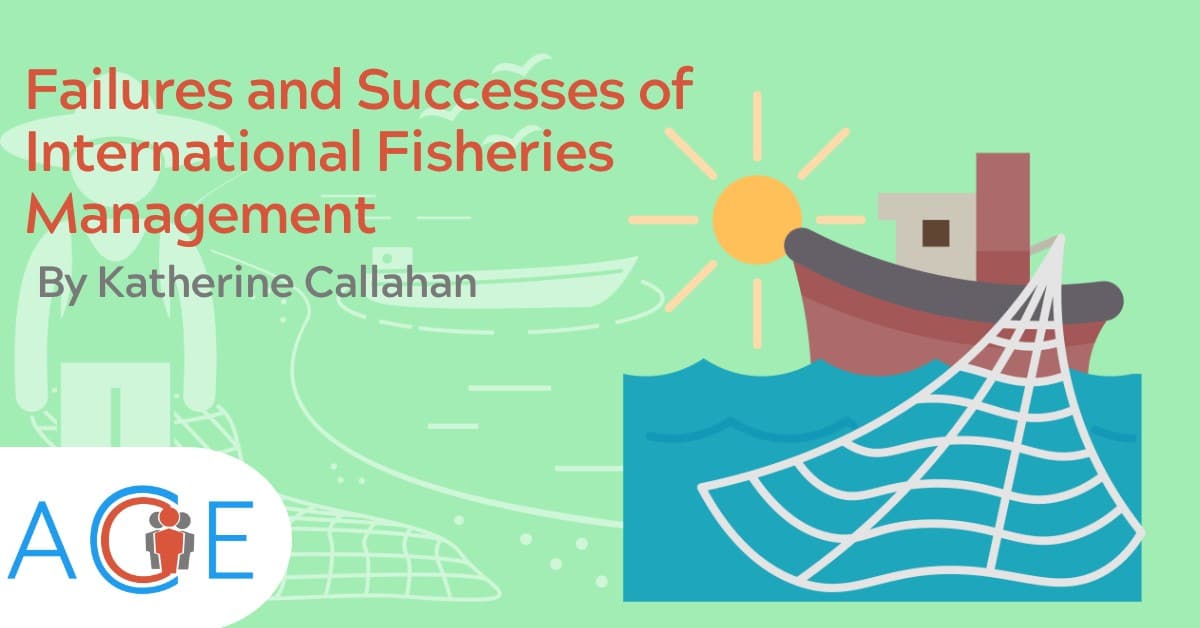The United Nations Convention on the Law of the Sea (UNCLOS), adopted in 1982, is a comprehensive agreement that defines the laws and regulations for the world’s seas and oceans. UNCLOS exists to ensure that as we move into the future, conversations are being had about our oceans and how to protect them, while still protecting the economies that rely on them. As the world population continues to increase and conversations around climate change encourage higher fish consumption, there is an increasing reliance on fisheries around the globe. Sustainable fishing practices are used to ensure that the environmental health of fisheries doesn’t diminish, while still utilizing them to feed the planet. The three tenets of sustainable fishing practices are sustainable fish stocks, minimizing impact on marine ecosystems, and effective management of operations. At the core of sustainable fishing practices is the desire to ensure longevity of fisheries and the benefits they provide to our global economy. “According to the Food and Agriculture Organization (FAO) of the United Nations, about 79 percent of seafood is sustainable. However, not all fishing practices are exemplary, and there is a limit to how much we can take from the ocean.”
The implementation of sustainable fishing practices under UNCLOS is crucial for global conservation efforts. While the United States is not a party to UNCLOS, its adherence to UNCLOS principles demonstrates a commitment to sustainable fishing. The collective efforts of all UN members in implementing sustainable fishing practices can significantly impact marine ecosystems. Despite past hesitations, the US has embraced sustainable fishing measures, aligning with UNCLOS values and regulations to promote marine conservation on a global scale.
Pros of Implementing Sustainable Fishing Practices
There are both economical and environmental benefits to implementing sustainable fishing practices. In 2013, the New Economics Foundation (NEF) report calculated the time it would take to fully restore over-exploited fish stocks, and found that if fishing in those areas was completely halted, they could be fully restored in five years, surpassing the 2013 fish supply levels in the EU in only four years. The result would be an initial economic loss, since fishermen would need payment during the transition to sustainable fishing practices. However, all initial costs would be recovered within 4-5 years, with “each year thereafter seeing a net benefit on the investment.”
Implementing sustainable fishing practices is crucial for protecting marine ecosystems and preserving marine biodiversity. According to the 2018 Living Planet Report by the World Wide Fund for Nature (WWF), the fishing industry has been a major contributor to the loss of marine biodiversity due to overfishing. Sustainable fishing techniques, such as selective fishing, can help minimize these impacts. Selective fishing targets only commercial value fish, reducing bycatch and allowing for the use of non-target species like fishmeal for livestock feed, thus minimizing food waste. By preventing overfishing and promoting sustainable practices, marine biodiversity can be preserved and even recovered, ensuring the viability of fishing industries for future generations.
Cons of Implementing Sustainable Fishing Practices
Economically, there are many costs associated with implementing sustainable fishing practices. As previously mentioned, it could be years before there is a return on initial investments. In the meantime, the world still relies on fishing to feed the population, and to support economies of food systems. Socially, many coastal communities and cultures around the world have traditions that revolve around fishing. Implementing sustainable fishing practices as law may negatively impact these traditions, altering cultures that have been around for centuries.
Lastly, the World Wildlife Foundation critiques current sustainable fishing practices in the sense that funds have not been successfully allocated toward improving fishing practices and the health of the oceans. “The sustainable seafood movement has been very good at developing eco-labelling incentives and technical mitigation solutions yet poor at keeping track of, or adopting, leading-edge sustainable business practices.” A 2019 study at Bournemouth University found that while sustainable fishing is implemented with the intention of preserving marine ecosystems, “it requires ecological devastation in terms of fish numbers (a removal of up to 80% of the initial level) to reach a population capable of producing maximum sustainable yield.” Furthermore, their study found that the ocean’s capability to absorb greenhouse gasses may be decreased by current sustainable fishing practices, suggesting that current techniques that are used for sustainability must be reimagined in order to truly have a positive impact on global warming and ocean ecology. One suggestion is a return to slower, more traditional forms of fishing, like the hook-and-line method, taking only what is needed to feed a population and no more.
Conclusion
The United Nations Convention on the Law of the Sea (UNCLOS) was initially designed to create a framework by which all countries knew the laws and expectations for how to conduct business pertaining to the global ocean system. Whether through implementing sustainable fishing practices, or not, we are all a part of one ocean, and UNCLOS hopes to create a unified approach to protecting this ocean, and the billions of people who rely on it.


